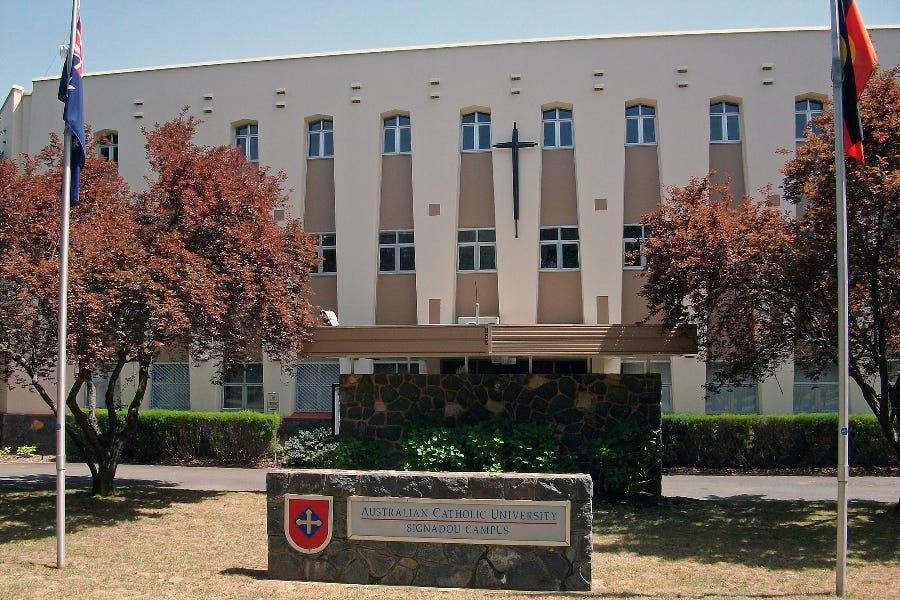What’s happening at Australian Catholic University?
The university senate is due to decide whether to renew its vice-chancellor, amid calls for 'some serious soul-searching' about the institution’s identity
The Australian Catholic University’s senate is due to decide Thursday whether to renew the appointment of its vice-chancellor.

That might not sound like a big deal, but it comes at a troubled time for ACU. The university has been at the center of a storm…
